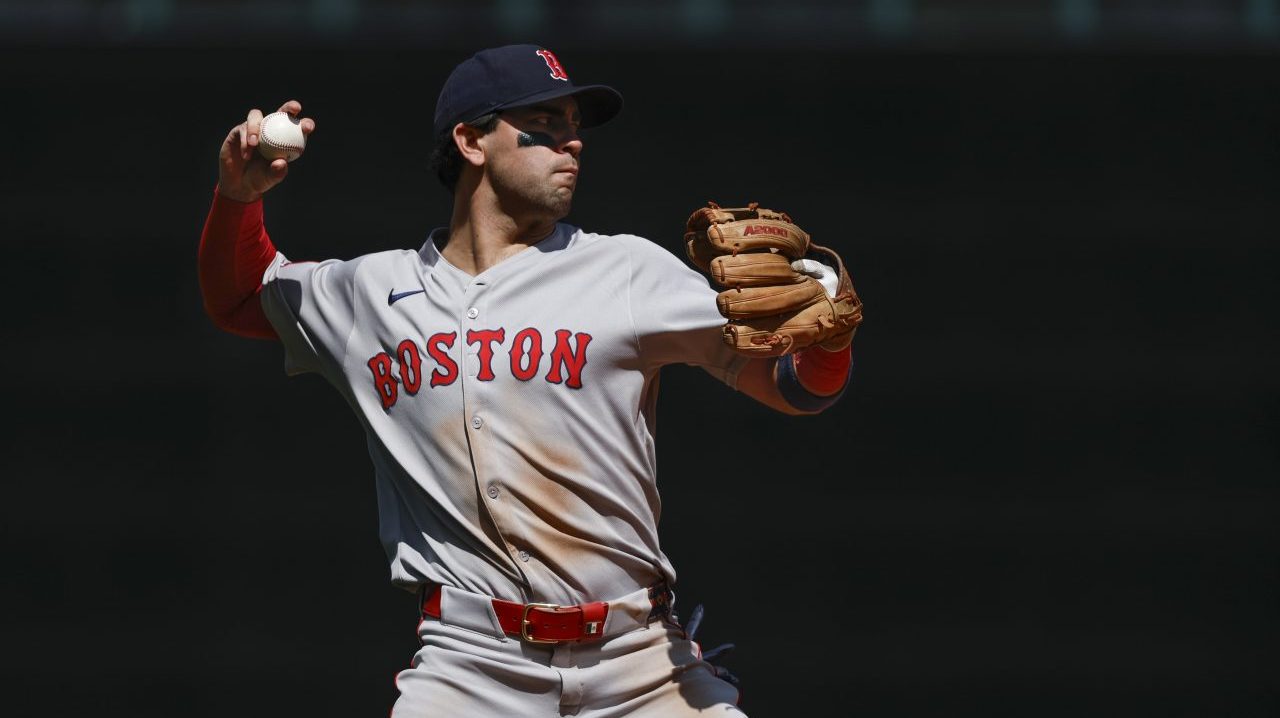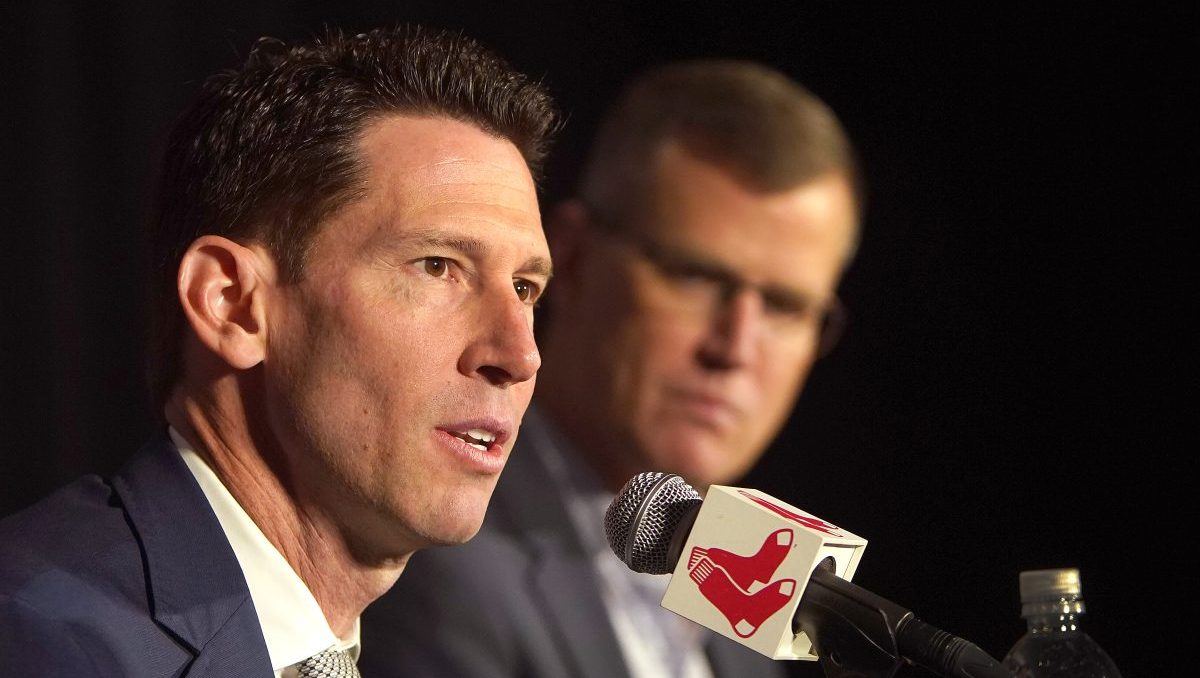Like every new manager, Alex Cora made a getting-to-know-you effort with his players this winter. He’s been around the game for a long time: player, ESPN commentator, bench coach. But he did not know many of the Red Sox on a personal level.
“The only guy that I really know is Dustin [Pedroia],” Cora said in January. “Well, I played with Mitch [Moreland] for five days, I think it was. But, talking to them and meeting them, it’s a lot different when — first of all I was on your side, very critical. And then I was the enemy, quote-unquote. So, the conversations were very limited. But now, they're more open.”
Interesting word choice. Catch that? The “enemy, quote-unquote.” Cora said as much basically in passing. But the words are nonetheless a gateway to a loaded topic. The way Cora said them suggested he thinks labeling the media the enemy is, at the very least, an oversimplification. He would know, to an extent. At ESPN, Cora was critical of how Chris Sale cut up jerseys with the White Sox, as most onlookers were. He has an idea of the workings of at least one job in the broad spectrum of media.
MORE RED SOX:
But Cora’s mention of the “enemy, quote-unquote” also further validated the idea that players hold this view: some players, in some places, including the Red Sox think this way. No surprise there. But, the subject is particularly relevant to both Cora and the 2018 Red Sox, given how 2017 unfolded without Cora.
Does the new manager think players look at the media as the enemy?
Boston Red Sox
Find the latest Boston Red Sox news, highlights, analysis and more with NBC Sports Boston.
"There’s certain guys [who] feel they’re the enemy,” Cora said in a sit-down with NBC Sports Boston. “You watch TV and you’re like, ‘What is he talking about?’ It’s not enemy as like really, enemy. But you try to keep ‘em away, far enough from you that they don’t bother you. I think at the end of the day, the media has a job to do. I lived it. I have to educate people. And with all the networks, 24-hour sports networks. There’s people there that — they’re there the whole time. And their job is to educate the fans.
“The fans want information, they want to know about their players, they want to talk about players, they want to be informed about other teams. This market — they do. I mean, I come from an organization that, for how great it was, I never had this feeling. Over 182 days, and in the playoffs, like, the need for information about my team: ‘I gotta know everything about it. What’s Alex doing today? Who’s playing today?’
“They ask about the lineup in spring training, sometimes I don’t even know who’s playing. You know, you guys ask me, I’m like, ‘I’ll get back to you.’ But everybody wants to know, and this is a market that they want that, they need it and we understand that. But as the enemy enemy? No no no. It’s not enemy. Sometimes you’re very aware and you’re cautious.”
MORE RED SOX
NBC Sports Boston sat down with a few players in the first couple weeks of spring training, and asked them: what could the media do better in the players’ eyes? The question was presented semi-seriously: maybe there’s a little pet peeve they have in interactions that doesn’t strike at any core issue, something that may be more amusing than anything else. Maybe they in fact have deeper thoughts on the media dynamic as a whole. They were given the floor.
Some of their thoughts:
“What I don’t like, what I would prefer is if people got fully dressed and then everybody ran over at the same time,” Jackie Bradley Jr. said, discussing how the media that actually goes to games can sometimes storm a player’s locker. “Instead of like surrounding the locker before.
“We kind of get a feel sometimes who’s gonna be asked certain questions and stuff like that. So, I mean yeah, I can only speak for myself. I’m there every time, and I’m fine to answer and I don’t shy away from the hard questions.”
Chris Sale? Well, he had a very Sale-like answer.
“Hey man, if you came and told me how to throw a slider, I’d laugh in your face,” Sale said. “I’m not going to tell you how to do your job. That’s not my style. I’m going to stay in my lane. And you ask me whatever you want to ask me and I’ll find a way to get it done.”
Hanley Ramirez said he doesn’t judge because he knows the media has a job to do.
“Sometimes the fans follow you guys. Sometimes you guys are saying things that the fans sometimes just take it the wrong way, and it’s not good for the players," Ramirez said. "We come every day to the field and get ready. … Sometimes [a game is] not going to go the way that you expect. If you see [a player] hustling and give everything, it's fine, it's fine. For me, it doesn't bother me, because I know that I give everything that I got every day."
Joe Kelly, who pretended to be a media member during camp as a prank, said he does not like when he’s told to talk about a subject rather than asked a question.
“I want it go be grammatically correct,” Kelly said dryly. “When you ask a question, I want your voice to rise a little bit. … If your teacher told you to write a question and then you put an exclamation point, are you going to get an A?"
MORE RED SOX
Rick Porcello took more of a philosophical route. He doesn’t necessarily love talking about the game itself after a game, a game many already know the result of.
“This is a great question for the fans,” Porcello said. “‘Cause that’s really what matters, is what they want to hear? What do they want to hear us talk about? I don’t want to get the question, ‘What happened out there today?’ If anybody watched the game they know what happened . . . Send out a poll question to the fans and see what they want to hear and then starting asking those questions.”
Brock Holt was asked this spring if he thought Aaron Judge and Giancarlo Stanton would hit more than 100 home runs combined. He would prefer if the questions were kept relevant to his own team.
“There is one question . . . 'What did the opposing pitcher have tonight?'” Benintendi said. “Maybe [it would be better if media did] not stand in the middle of like the clubhouse, so we have to go around you guys all the time.”
Cora played too. He said he didn’t love being asked simply, “How do you feel?”
"During my career, not too many people came up to me and talked," Cora said. "I think in 10 days [in Florida with the Red Sox] I had more interviews than I had over the course of my career. I think people want to know.
“People want to know, what are you thinking in that situation? The answer is like, I don’t know, I just reacted. That’s good enough, you know? We don’t have to go deep into it. Hey, sometimes it’s just a reaction. One thing I’ve been telling them, and I use ground balls as an example. You know, in baseball there’s no right or wrong. Obviously there’s decisions that a manager did make that, yeah, I mean, I’m gonna get crushed because I decided not to pitch this guy in this situation. That comes with the territory.
“But, as a player . . . there’s a ground ball. The ball comes up, you got two options: either charge the ball and catch the short hop or step back and catch the long one. There’s no right or wrong. So I mean, whatever decision they make during the game, it’s a reaction, it’s instinct.”


